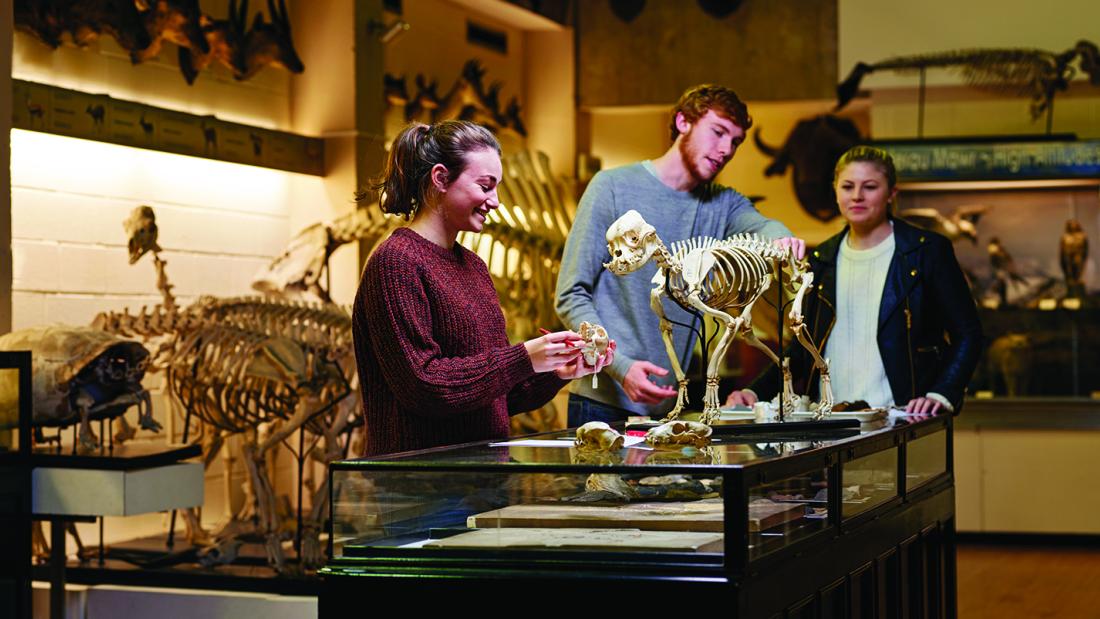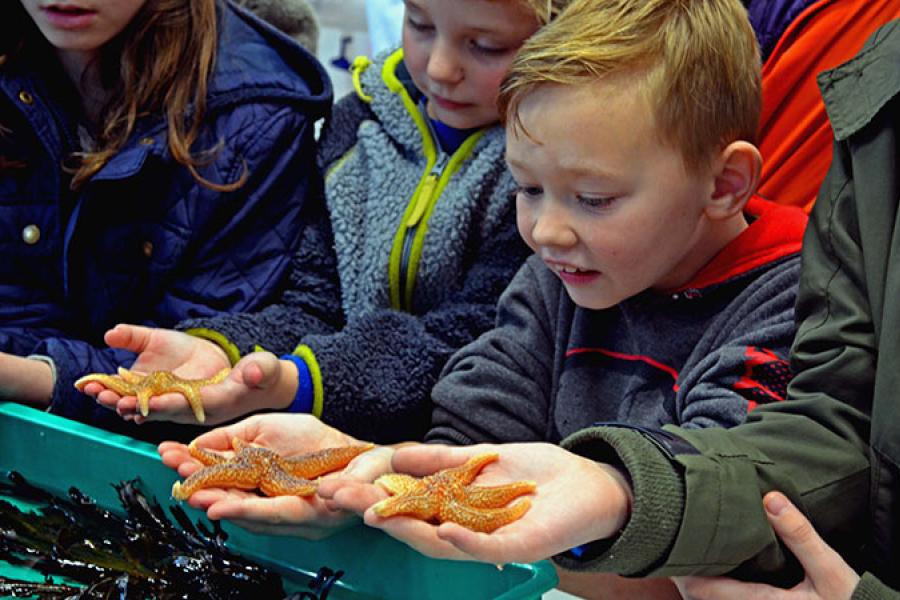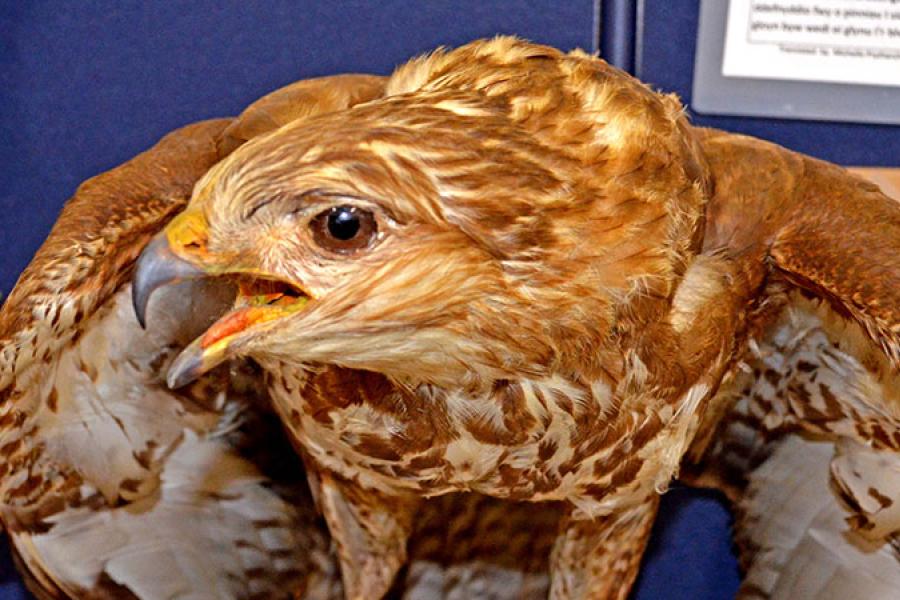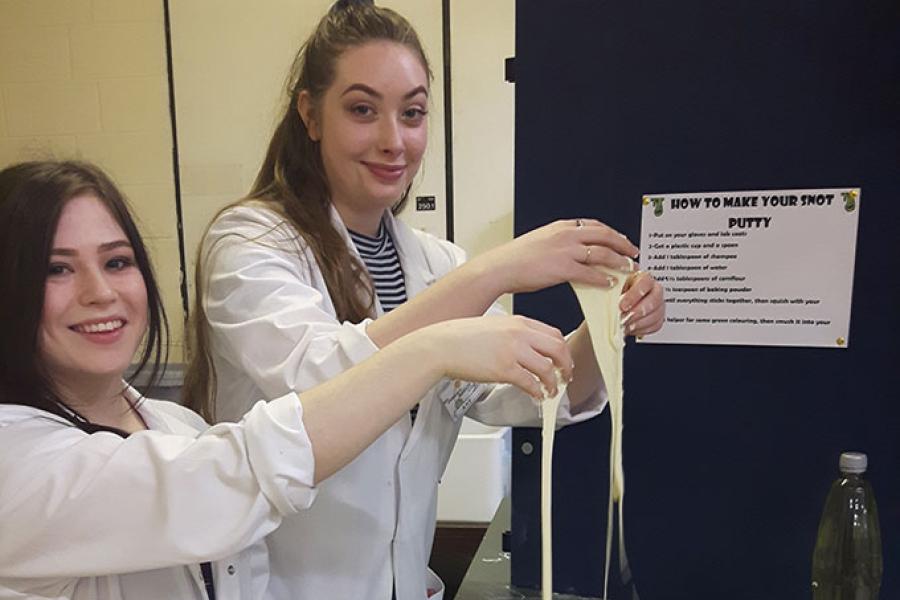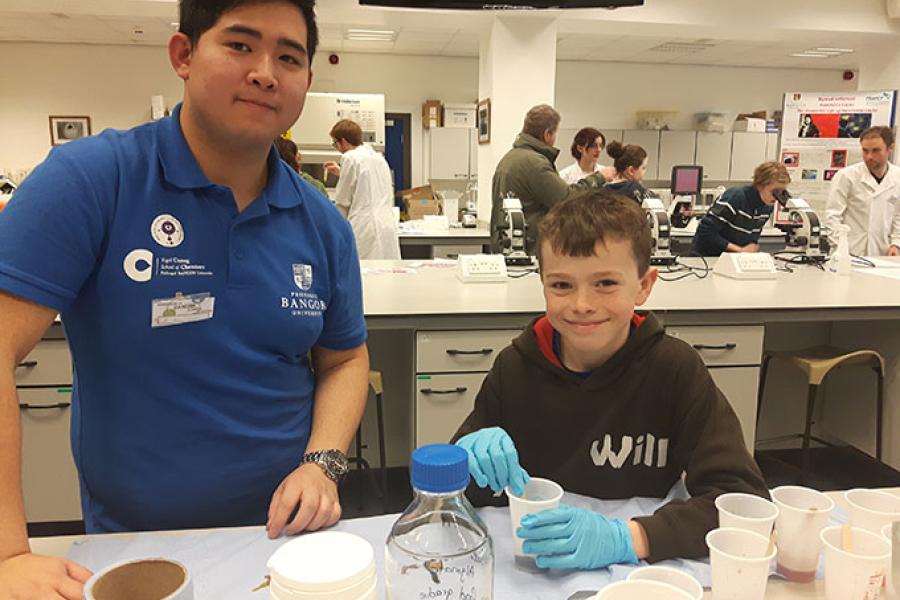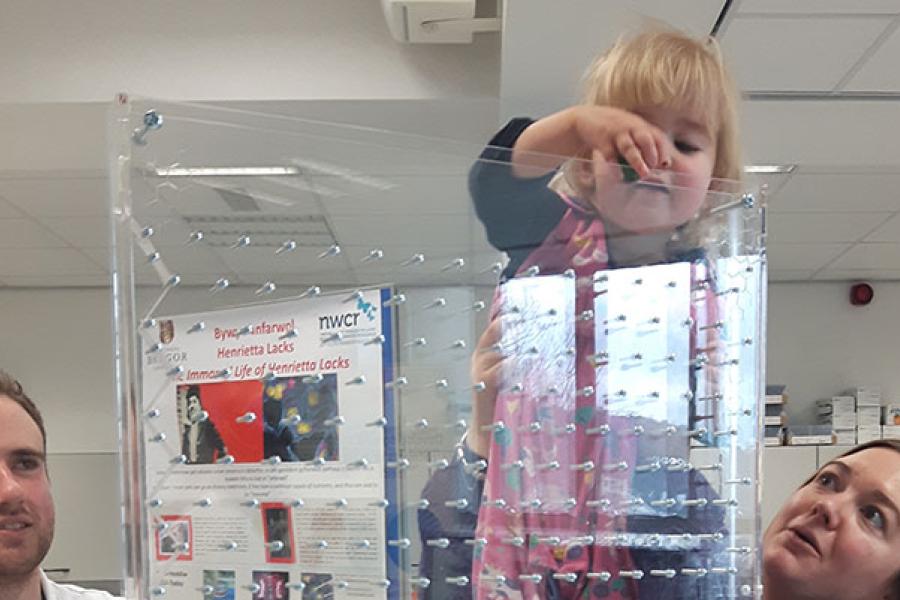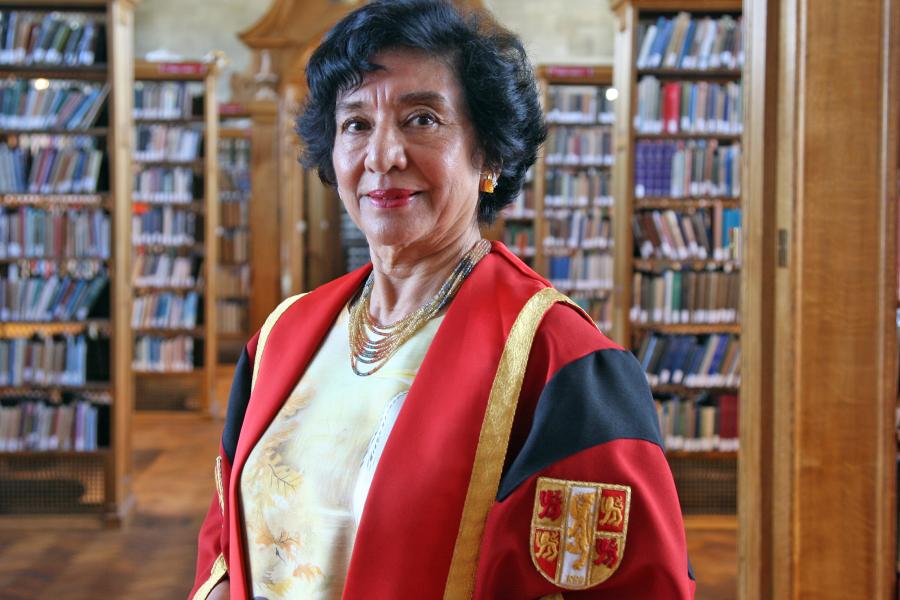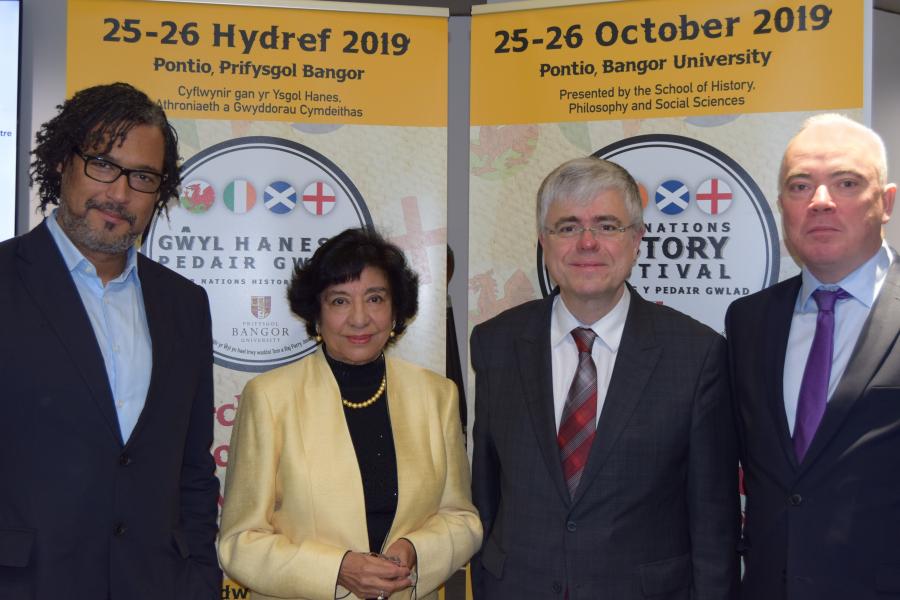Key Bangor Science Festival Facts
Bangor Science Festival is part of British Science Week organised by the British Science Association.
Bangor Science Festival events will be held during March 2024. Please see the full details of our events below.
The Festival will be held at various locations. Please see individual events for details.
Bangor Science Festival is for everyone! We have events suitable for individuals and families to attend and also have sessions organised specifically for schools. Please see the individual event details below for more information.
Bangor Science Festival is free - there are no costs for attending any of our organised events but you may need to book or register in advance for some of them.
Events
Contact Us
Bangor Science Festival is co-ordinated by Stevie Scanlan, College of Science and Engineering in partnership with many other colleagues at Bangor University.
If you have any queries, please get in touch.
Our Funders
Bangor Science Festival is generously sponsored by the Tom and Raj Parry Jones Endowment Fund. The Fund is dedicated to the memory of Dr Thomas Parry Jones OBE (1935-2013), a Welsh scientist, inventor and entrepreneur, who was responsible for developing and marketing the first electronic breathalyser.
An alumnus and Honorary Fellow of Bangor University, Dr Tom Parry Jones and his wife Raj Parry Jones established the fund in 2002 to encourage young people to develop careers and entrepreneurship in science and technology. The fund supports programmes across the University, including the Bangor Science Festival, and Bangor University is very grateful to Mrs Raj Parry Jones for her continued support.
More information
Since its foundation in 1884, Bangor University has specialised in key areas of science. Its long tradition of world class research has been enhanced by its unique location and cultural heritage, and is accompanied by a commitment to communication, involving individuals and communities, to stimulate the development of knowledge and innovation.
- To enthuse and inspire young people about science; to empower them as citizens, and to create the next generation of scientists and engineers.
- To identify areas of public interest and concern, where scientists can contribute to discussions for exchange of ideas and expertise.
- To enhance public access to research and to stimulate discussion of scientific methods and results, their relevance, and the wider implications for society.
- To support researchers in their endeavour to be reflective about issues raised by their research.

